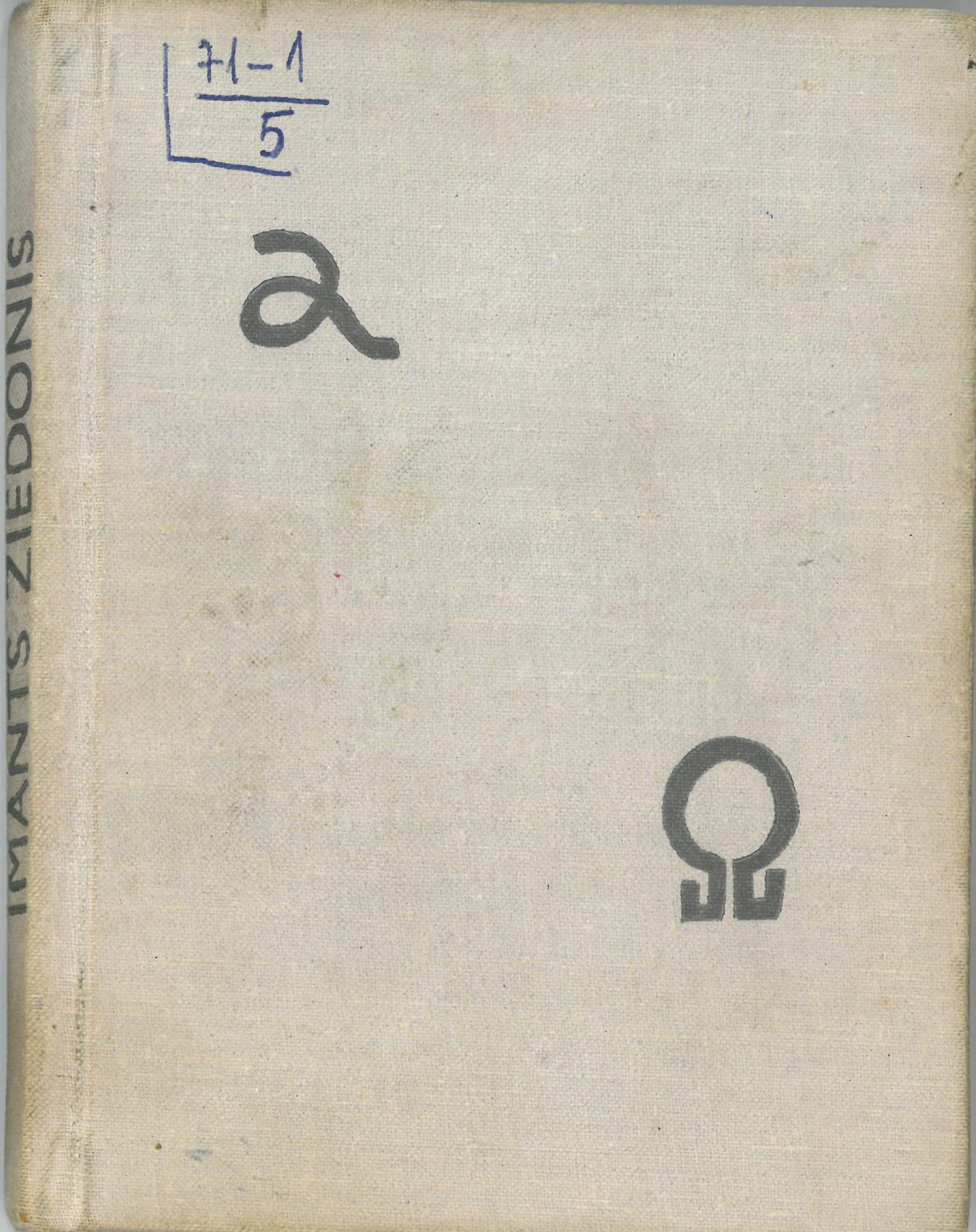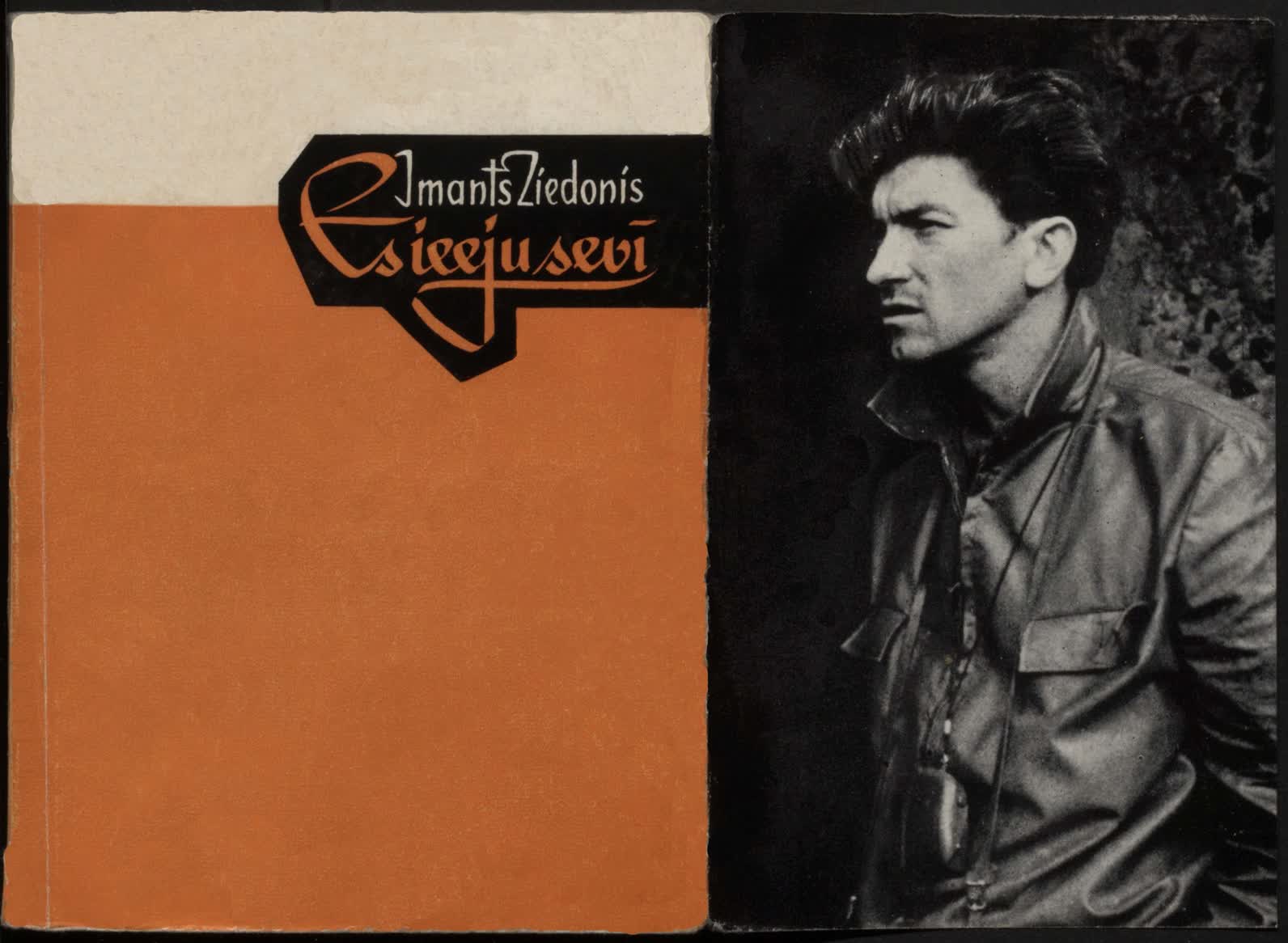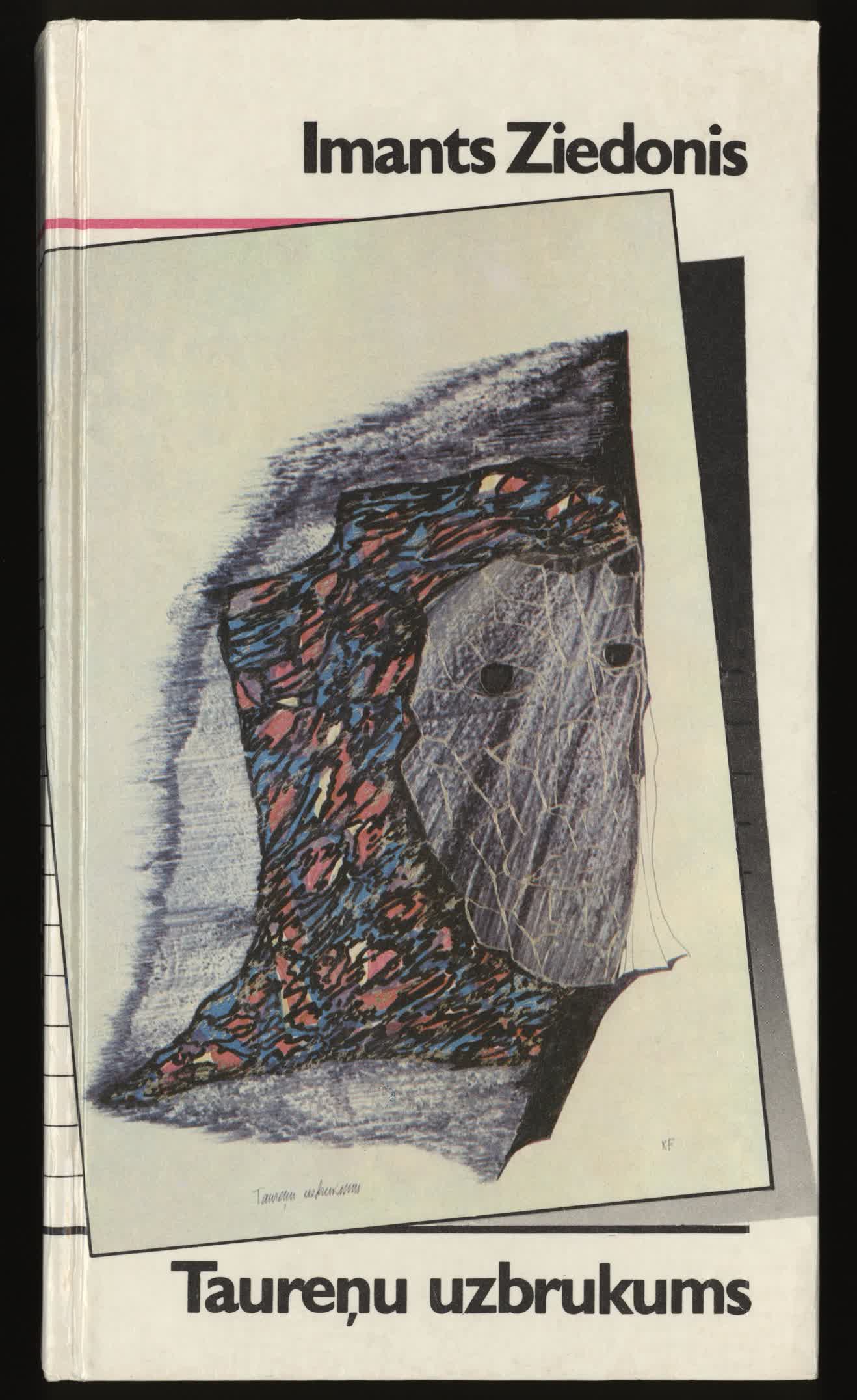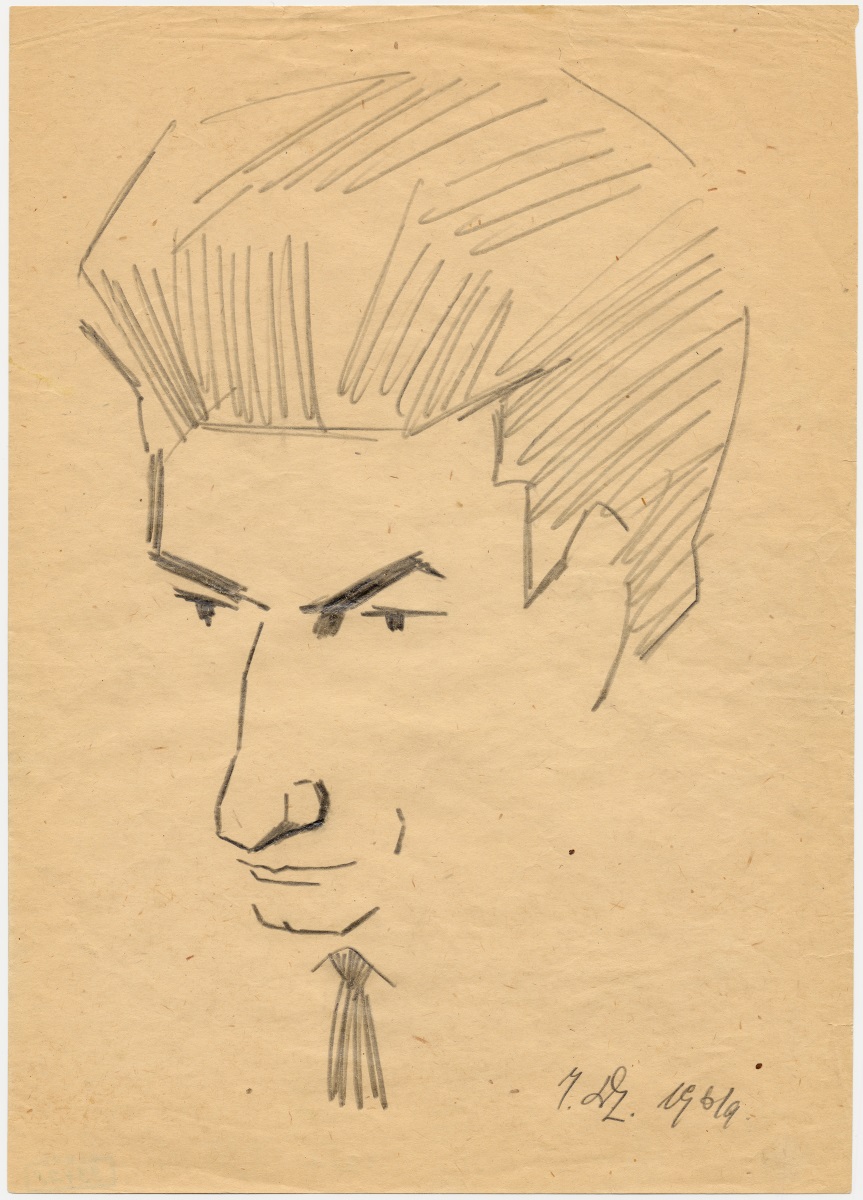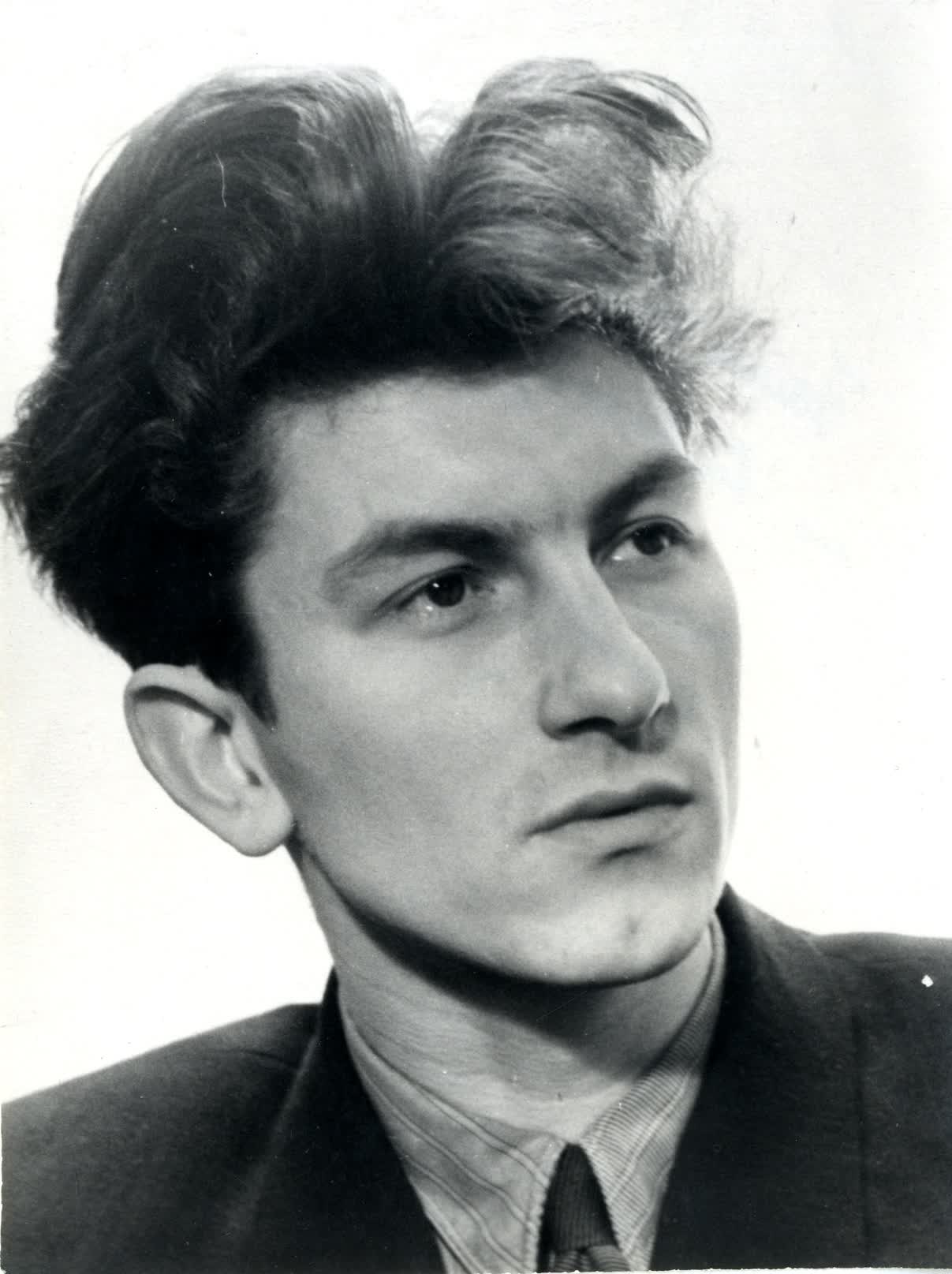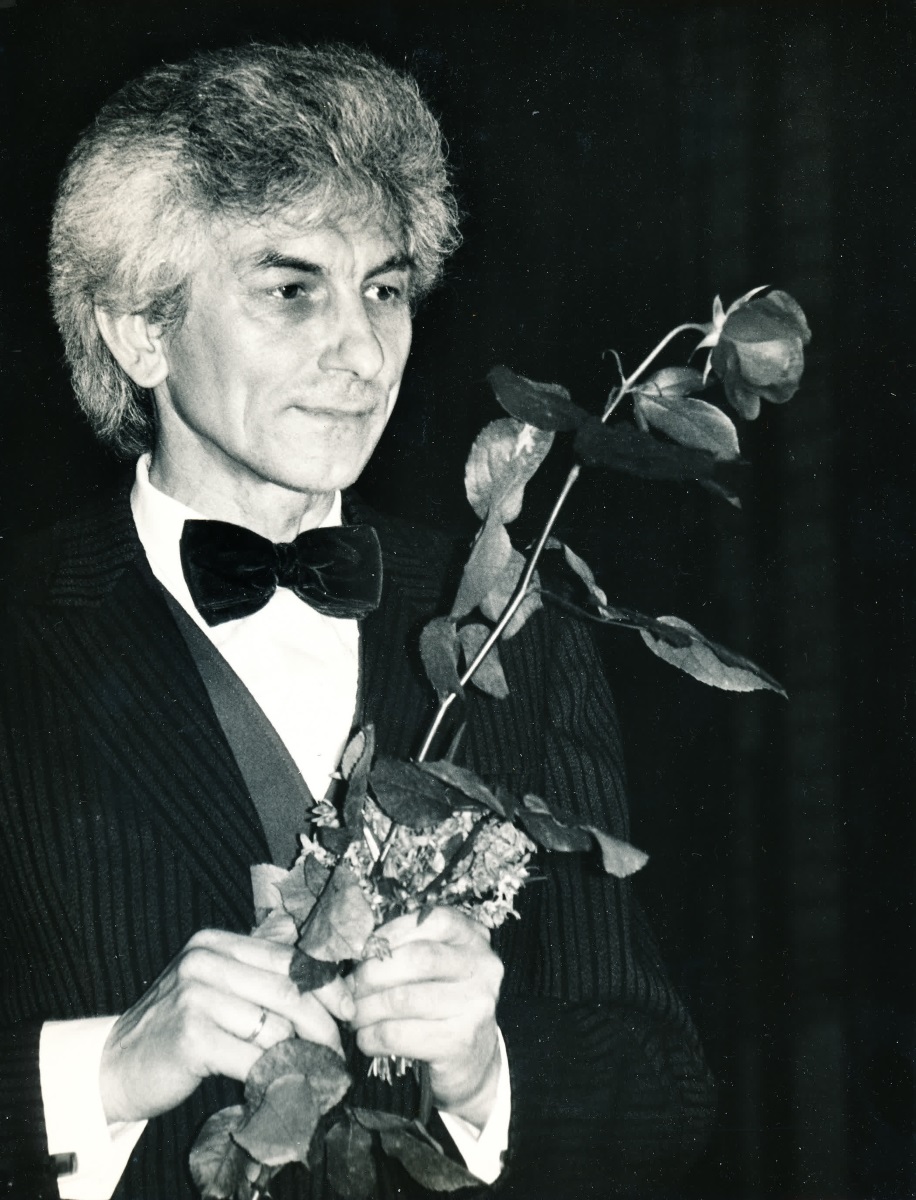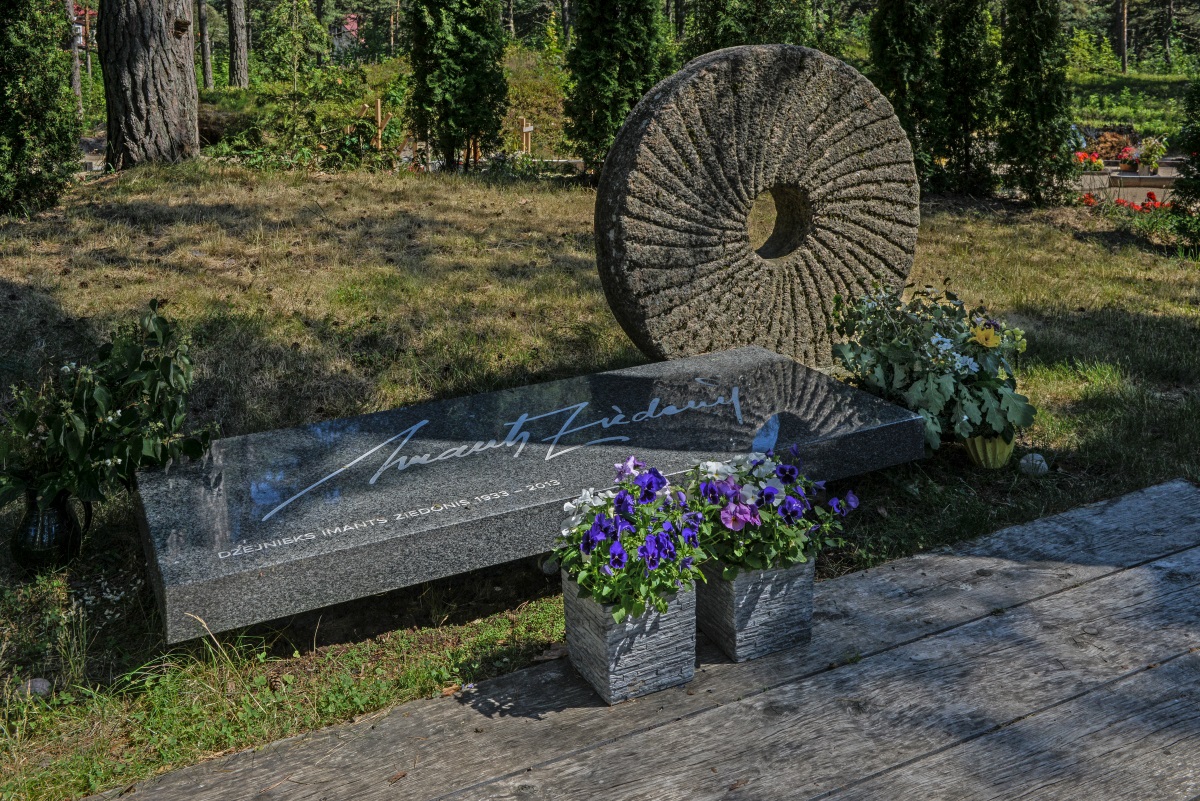Poem Collections "I Enter Myself", 1968, and "Butterfly Attack", 1988, and Collections of Short Texts "Epiphanies", 1971 and 1974, by Poet and Writer Imants Ziedonis (1933−2013)
Imants Ziedonis was probably the most influential and widely popular Latvian poet of recent decades. His poetry exemplified a shift from the celebrations of progress that had typified Latvian poetry in the decades after its forced incorporation into the Soviet Union to a more introspective mode, preoccupied with a search for truth and personal growth. And however inward-looking his creative work often was, Ziedonis was very much a public figure, politically active and vocal on the problems facing Latvia, and was involved in many of the struggles his country faced – not least the restoration of its independence.
Guntis Berelis on Imants Ziedonis in the Latvian Culture Canon, 2008. (in Latvian)
Fragments from Imants Ziedonis' "Epiphanies" 1st book, 1971. (in Latvian)
Fragments from Imants Ziedonis' "Epiphanies" 2nd book, 1974. (in Latvian)
Fragments from Imants Ziedonis' poem collection "I Enter Myself", 1968. (in Latvian)
Fragments from Imants Ziedonis' poem collection "Butterfly Attack", 1988. (in Latvian)
Imants Ziedonis [brochure]. (1981). Rīga: Latvijas PSR Brīvprātīgā grāmatu draugu biedrība. National Library of Latvia, Collection of Small Prints. (in Latvian)
Programme of the Latvian SSR National Poet's Imants Ziedonis author evening. (1983). Latvijas Padomju rakstnieku savienības Literatūras propagandas birojs (Bureau of the Latvian Soviet Writer Union's Literature Propaganda). National Library of Latvia, Collection of Small Prints. (in Latvian)
Guntis Berelis on Imants Ziedonis in the Latvian Culture Canon, 2008.
Rūta Šmite on Imants Ziedonis in the Latvian Culture Canon, 2017. (in Latvian)
Berelis, Guntis. (1999). Sešdesmito gadu dzejas renesanse: Imants Ziedonis. „Baznīcu uz kalna celšu”. No: Guntis Berelis. Latviešu literatūras vēsture: no pirmajiem rakstiem līdz 1999. gadam (166.-175. lpp.). Rīga: Zvaigzne ABC.
Čaklā, Inta. (1995). Brīvības nolūks: [Imanta Ziedoņa dzeja 1972-1981]. No: I. Ziedonis. Raksti. 4. sēj. (530.-539., 209.-216. lpp.). Rīga: Nordik.
Čaklā, Inta. (1995). Nerimtība: [Imanta Ziedoņa dzeja 20. gs. 60. gados]. No: I. Ziedonis. Raksti. 1. sēj. (527.-534. lpp.). Rīga: Nordik.
Ezera, Regīna. (1989). Dvēseles uzliesmojumi: I. Ziedoņa „Epifāniju” 2. grām.: [iekšējā rec. izdevniecībai „Liesma” 1974. g.]. No: R. Ezera. Virtuvē bez pavārgrāmatas (144.-154. lpp.). Rīga: Liesma. Rakstnieki par literatūru.
Ezera, Regīna. (1989). Virtuvē bez pavārgrāmatas. [Sastādījis un pēcvārdu sarakstījis B. Tabūns]. Rīga: Liesma. Rakstnieki par literatūru.
Grīnvalde, A. (1972). Dažu nozīmīgu problēmu padziļināšanās latviešu 60. gadu lirikā: [par krāj. „Es ieeju sevī”]. No: Valodniecības un literatūrzinātnes problēmas: [rakstu krājums] (151.-152., 155., 162.-163. lpp.). Rīga: Zvaigzne.
Imants Ziedonis, 1933: dzejnieks, esejists, publicists. ([2006]). No: 100 Latvijas personību (166.-167. lpp.). [Rīga: Nacionālais apg.]. T.p. angļu val. grām.: A Hundred Great Latvians (154.-155. lpp.). (2006). Rīga: Nacionālāis apg.
Imants Ziedonis. Piederības meklējumi, brīvības treniņš: zinātnisko rakstu krājums. (c2014). Sastādītāja Ausma Cimdiņa; Latvijas Universitāte. Humanitāro zinātņu fakultāte. Rīga: Zinātne. Latviešu pamattekstu pētījumi.
Imants Ziedonis: bibliogrāfija: 2 sēj. (2013-2015). Rīga: Latvijas Nacionālā bibliotēka.
Kubuliņa, Anda. (1987). „Darbs piedzimstot tiek līdzi dots” (I. Ziedonis): [par krāj. „Es ieeju sevī”. No: A. Kubuliņa. Ērkšķu kronis katram savs: apcer. par dzeju (portreti, arī tēlu semantika) (62.-68. lpp.). Rīga: Liesma.
Kursīte, J. (1988). Sešdesmitie gadi: [par krāj. „Es ieeju sevī”]. No: J. Kursīte. Laikazīmes dzejā (103.-104. lpp.). Rīga: Liesma.
Ķikāns, Valdis. (1980). Mēs būsim lieli tik, cik mūsu griba: [par I. Ziedoni un O. Vācieti]. No: Valdis Ķikāns. Pieci: raksti par Ojāra Vācieša, Imanta Ziedoņa, Imanta Auziņa, Arvīda Skalbes un Māra Čaklā jaunāko dzeju (55.-106. lpp.). Rīga: Liesma.
Lasmanis, Mārtiņš. (1988). Piezīme par „Taureņu uzbrukumu”: [par Imanta Ziedoņa dzeju grāmatu]. No: Ziedonis Imants. Taureņu uzbrukums. Rīga: Liesma.
Lasmanis, Mārtiņš. (2004). Aplūkojumi (44.-[47.] lpp.). Rīga: Nordik.
Muša, Ēvija. (2002). Indivīda psihiskās struktūras shēma Imanta Ziedoņa dzejoļu krājumā „Taureņu uzbrukums”. No: Valoda un literatūra kultūras apritē: zina. rakti (233.-240. lpp.). Rīga: Latvijas Universitāte. Latvijas Universitātes zinātniskie raksti; 650. sēj.
Promatnākt, šurpaiziet: raksti par Imantu Ziedoni. (1983). Sastādītāja Inta Čaklā. Rīga: Liesma.
Rožkalne, Anita. (1995). Es ieeju sevī. No: I. Ziedonis. Raksti: 1. sēj.: Dzeja, 1961–1971 (517.-520. lpp.). Rīga: Nordik.
Rožkalne, Anita. (1995). Lielo loku laiks: [par krāj. „Taureņu uzbrukums”]. No: I. Ziedonis. Raksti. 11. sēj. (439.-449. lpp.). Rīga: Nordik.
Skujenieks, Knuts. (1990). Pakāpiens: 1988. g. dzejas grām.: [par krāj. „Taureņu uzbrukums”; tekstā I. Ziedoņa dzejolis „Flokši caur tumsu mirdz…”]. No: Kritikas gadagrāmata. 17. [laid.] (82.-89. lpp.). Rīga: Liesma.
Vērdiņš, Kārlis. (2011). Bastarda forma: latviešu dzejprozas vēsture, latviešu dzejprozas antol. (189.-198. lpp.). Rīga: LU. Lit., folkloras un mākslas inst.
Vērdiņš, Kārlis. (2011). Imanta Ziedoņa „Epifānijas” un „Taureņu uzbrukums”. Kārlis Vērdiņš. Bastarda forma: latviešu dzejprozas vēsture, latviešu dzejprozas antol. (189.-198. lpp ). Rīga: LU. Lit., folkloras un mākslas inst.
Ziedonis, Imants. (1995-2002). Raksti: 12 sējumos. Rīga: Nordik.

